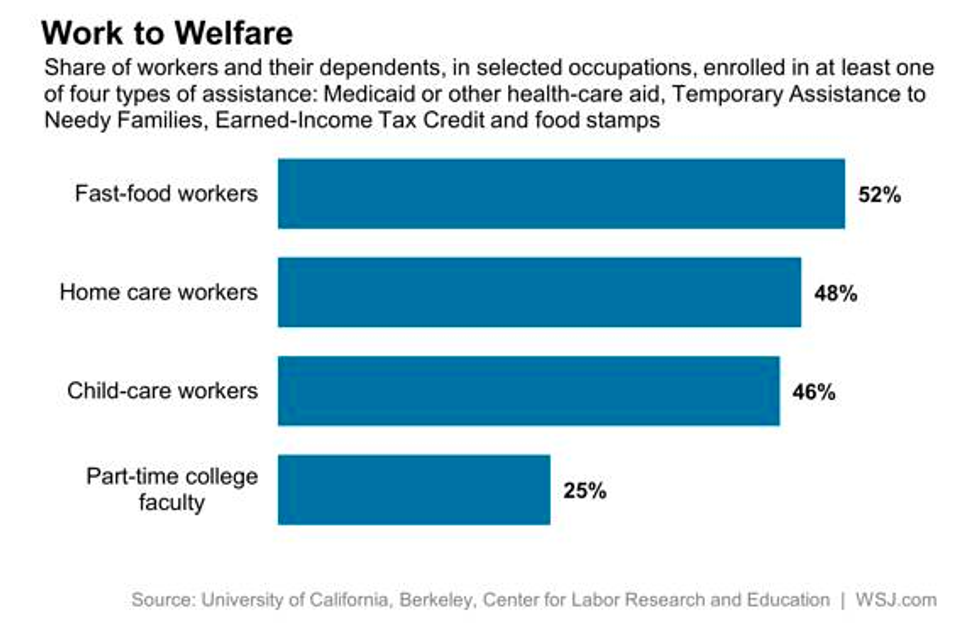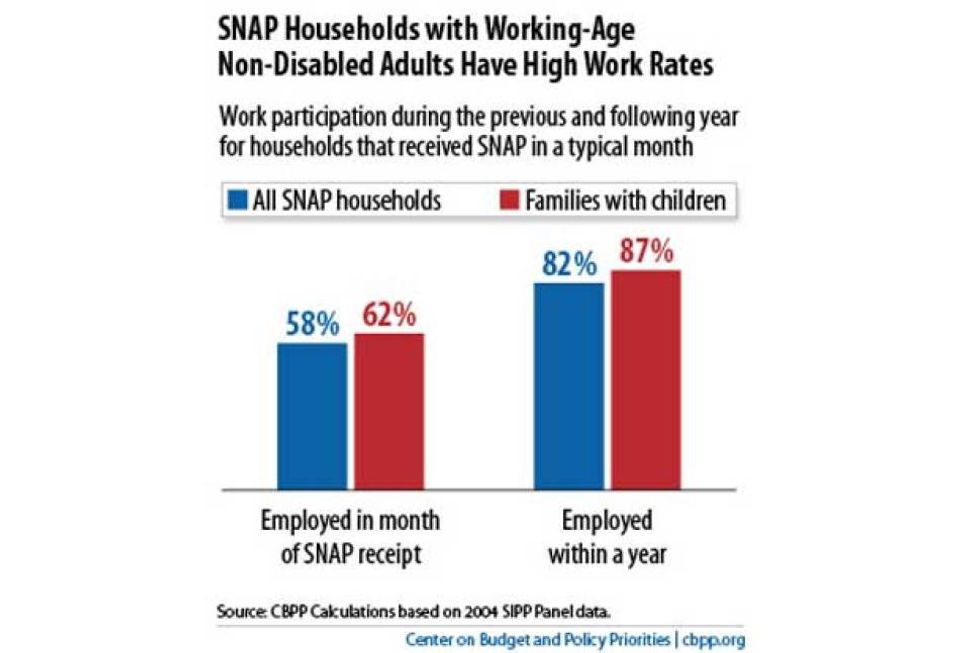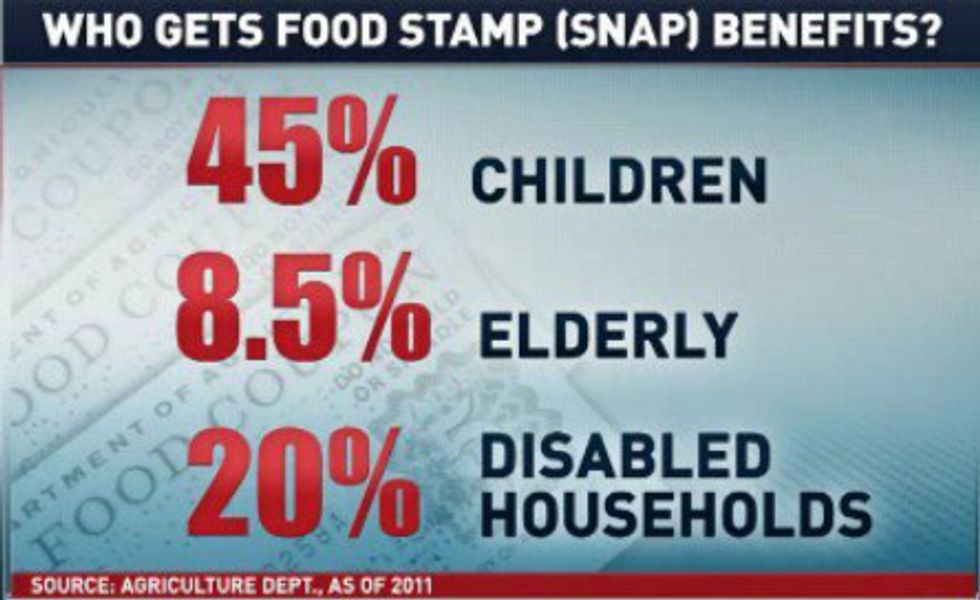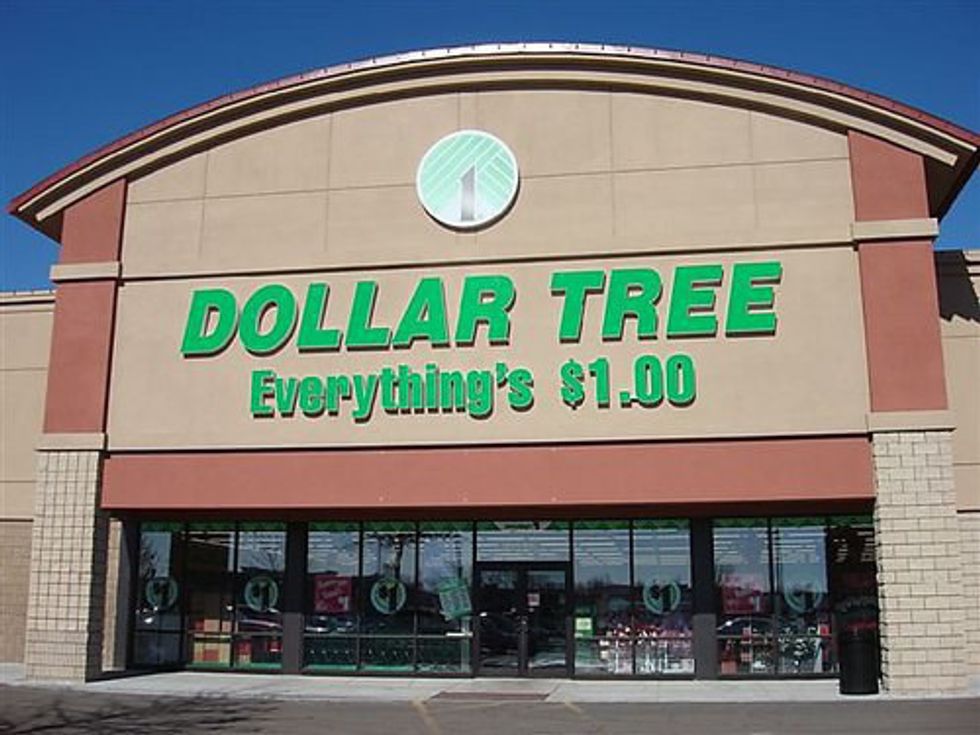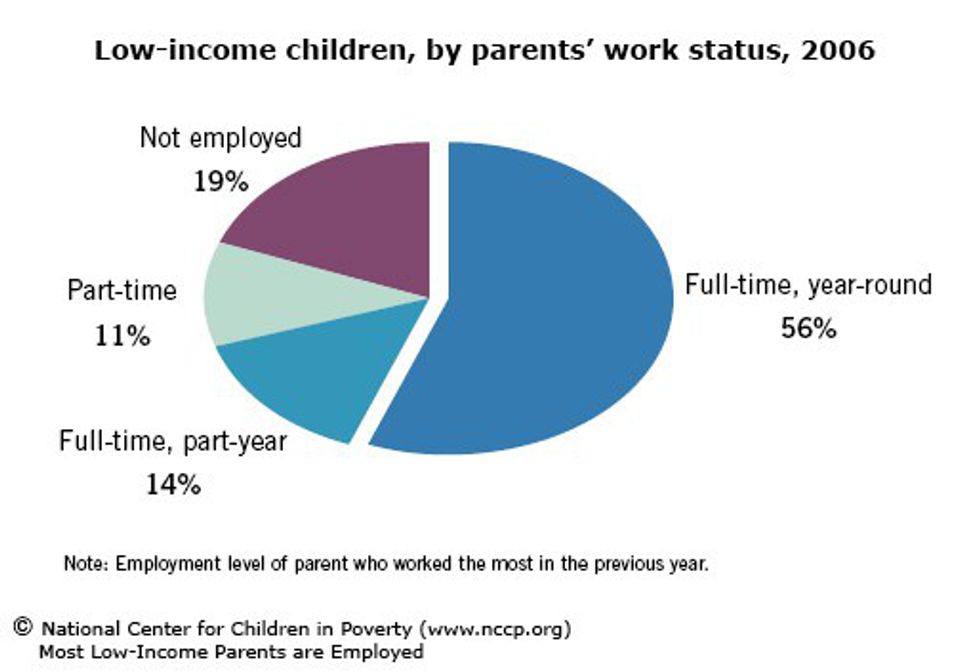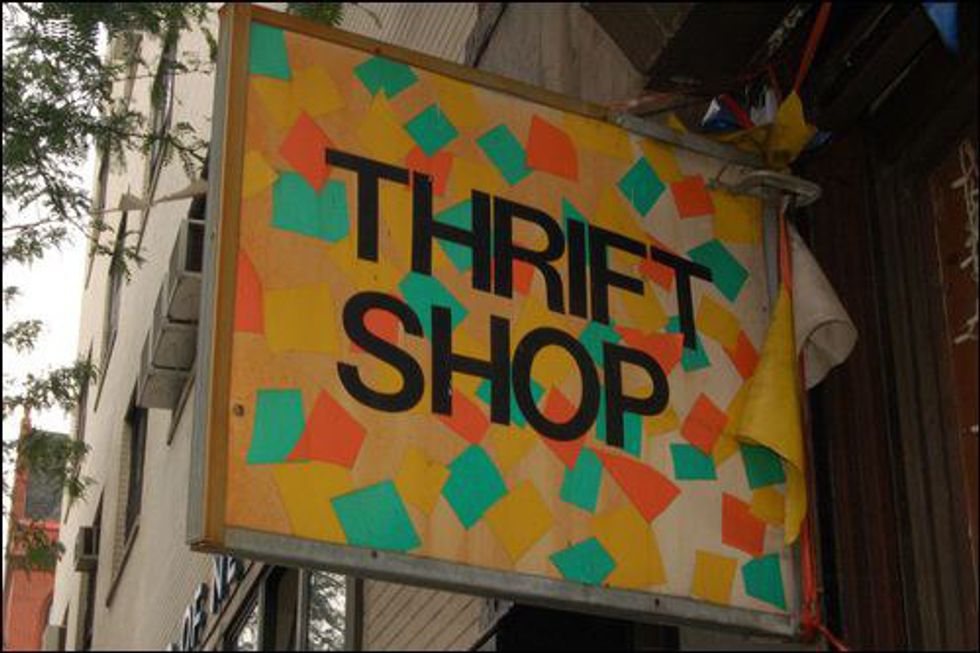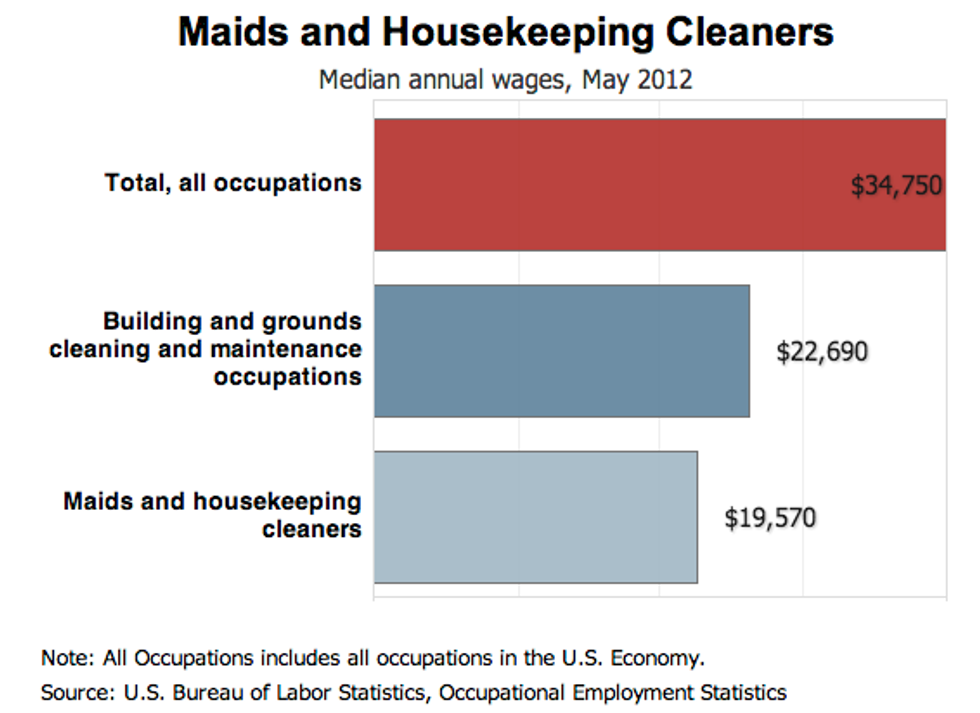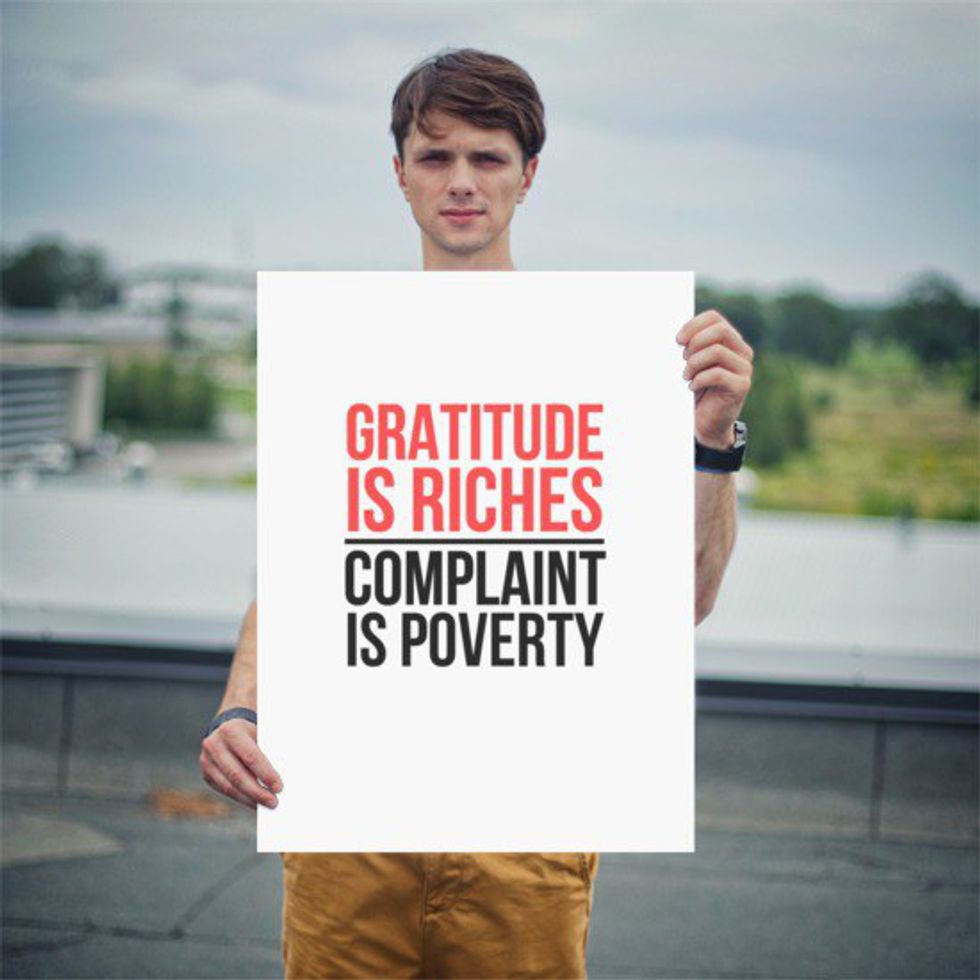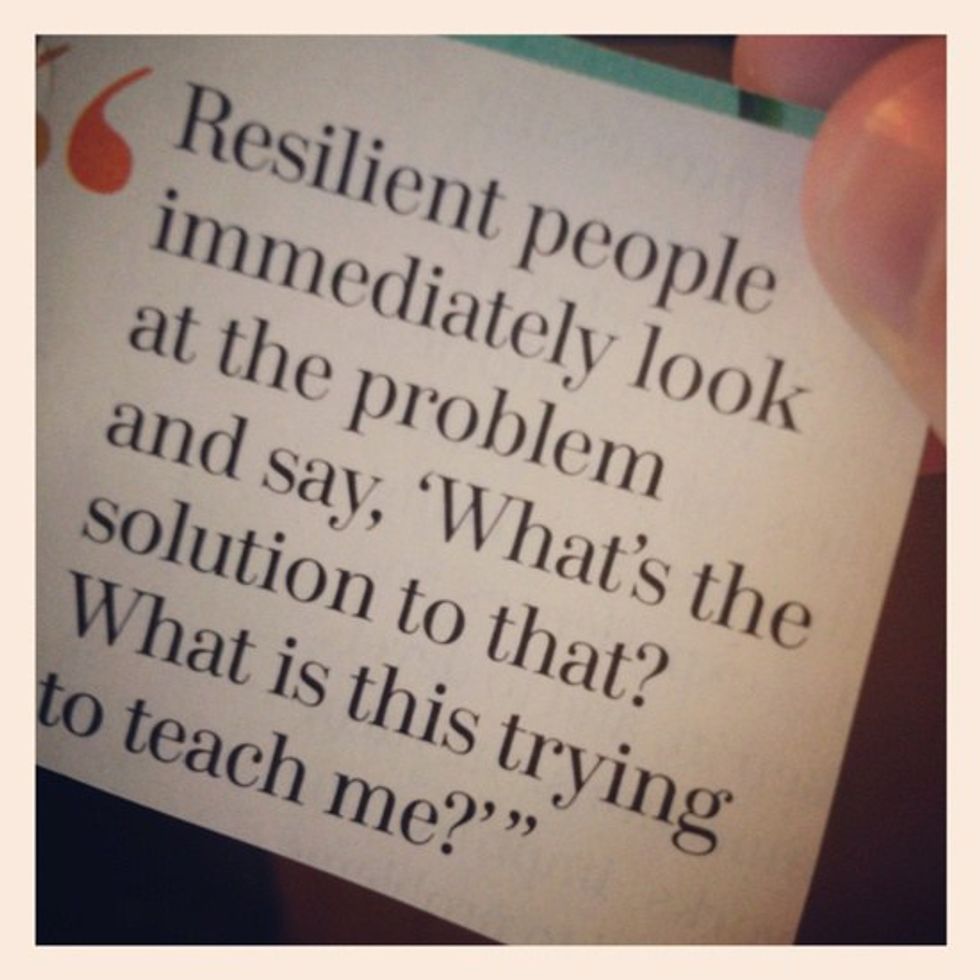I can only discuss this from my own experience. I would like to preface that each household works with its own intersections of identities and values. My experience could never reflect the majority, so my hope is that it debunks some rampant stereotypes I've been privy to observing. You know the ones, the ones about the "#WelfareQueen who buys dope with Food Stamps and has kids just so she can get more money from the government while the middle-class employees of the country do the real work". Yeah, don't perpetuate that garbage.
1. Your parent worked their ass off
My favorite stereotype is that all people who receive government support are lazy and haven't worked a day in their lives. I've heard students at UVM (when confronted with their class privilege) say: "It's not my fault my parents worked hard for me!". In my own household, I was raised by a young single-mother. She didn't have the opportunity, funds, or supports to go to college. She found a passion that suited her artistic and social abilities, instead. She became a professional hairdresser.
She would be working on her feet for a minimum of eight hours at a time, sometimes working up to 80 hours a week. She used her practice to make people feel confident in their appearances as well as listen to all of their grievances (I swear, hairdressers double as therapists). She'd come home from her job (or multiple jobs, at several points) and use her tips to splurge on a Lauryn Hill CD or McDonald's. As a kid, it was pretty rad.
2. The first of the month was both the best and the worst
For anyone who has ever received Food Stamps, you'd know this day with both profound excitement and terror. The excitement stems from being able to have a fully stocked fridge, and not just any type of fully stocked, the type that means you get brand-named snacks. I remember the first of the month being the time when I could buy a Kid Cuisine for school lunch. The terror stems from the sheer volume of people at your local grocery store. If you're a person who has little experience with Food Stamps/SNAP benefits, and you have no idea why the grocery store is beyond packed at the beginning the month, this is your answer.
3. You didn't know that people had to pay for their lunch at school
If you're on welfare (for me, at least), you got to have free lunch at school. It wasn't until I was in 4th grade when someone made some bastard comment along the lines of "Only the poor kids get free lunch!" that I found this wasn't the standard.
4. The Dollar Tree was a blessing
There was nothing more exciting for me than it was to be able to pick out an extra toy at the Dollar Tree. I remember getting a cheap-ass plastic flute recorder one time and I thought it made me a celebrity musician. The small positives made a difference. That being said, it also represents how people who live in poverty are marketed items that are seen as part of detestable corporate complexes. Yeah, the Dollar Tree is corporate and probably runs off of some pretty scummy money, and it's often a person's only feasible option. Making people who live in poverty feel guilty for what they can afford is a systemically manipulative tactic.
5. Every Christmas started with "I'm sorry, this is the best I could do this year"
Christmas time can be difficult for any family, making it that much harder for a family on welfare. When a parent is working to pay rent, car insurance, electricity, and gas, it can feel near impossible to give your kid the holiday they want. My mom began nearly every Christmas with an "I really tried," and each year she still managed to hold it together (even after cutting corners and working longer hours) and provide me with a memorable holiday experience.
6. You didn't grow up in rags
There's this stereotype that "poor children" need utmost sympathy from society. Even me, a person who grew up in a household below the poverty line, imagine "poor children" to be dressed in rags and living through the Great Depression. Parents on welfare will often work to make the impoverishment a secret from their kids. I didn't get to buy the most expensive clothes or school supplies, but I still had what I needed.
7. The idea of people having paying someone to clean their home baffled you
This is something I only learned about this year. I had no idea such a high volume of people have paid someone to clean their homes (which is ridiculous, because there was a period where I was paid to clean someone's home). I'm still just so perplexed, I don't even have much to say about this other than "What, no, isn't that only in movies? What??"
8. You were expected to be grateful
This is a stereotype I had ingrained in myself. I thought I needed to be outrageously grateful for everything that came my way, when in reality, I wasn't. Kids can be selfish little buggers, even kids on welfare. Though I knew we couldn't afford it, there were still times where I whined about not getting the toys everyone else had. What upsets me about this is that it perpetuates the idea that people who are on welfare aren't permitted to have their own desires. People on welfare get chastised for having nice phones and shoes all the time, when that's often a person's way with trying to blend in with everyone else.
Seriously if I ever hear someone say "Ugh, how do they have an iPhone? They get Food Stamps" I'm going to scream. People need phones to social media to communicate, often with their own employers. A person shouldn't be deprived of human contact because they need help buying food. An "attitude of gratitude" can't dismiss the exhaustion inflicted by poverty.
9. You learned how to make it work
You knew how to value generic brand household cleaners and canned vegetables and make them last. You knew how to buy your clothes at a Goodwill and make them look fashionable. You run to the 75 percent clearance rack in any store you entered. You knew coupons, sales, and how to handle financial stress at a young age. You knew how to be mad at the world, and you knew how to stay resilient.




